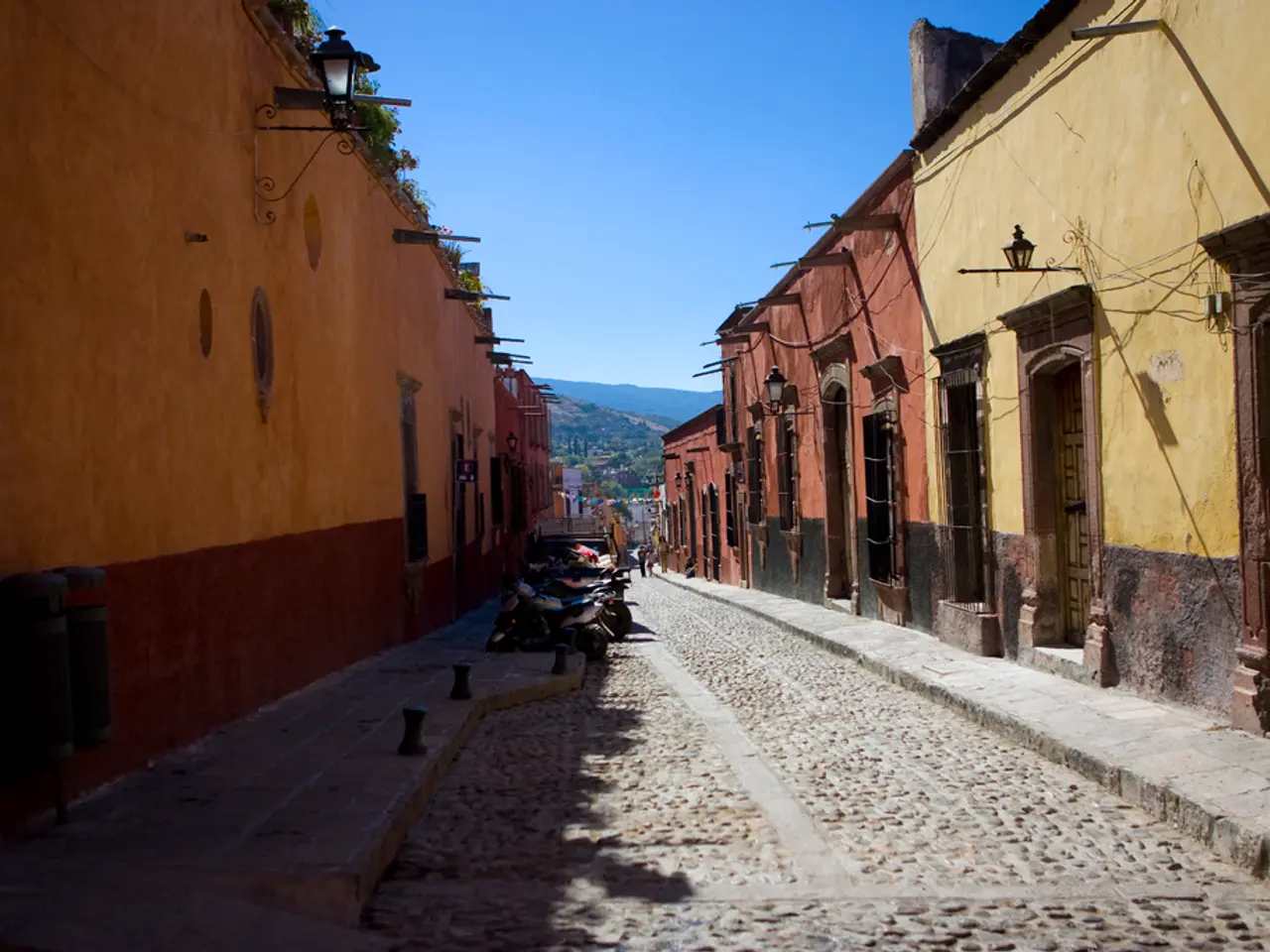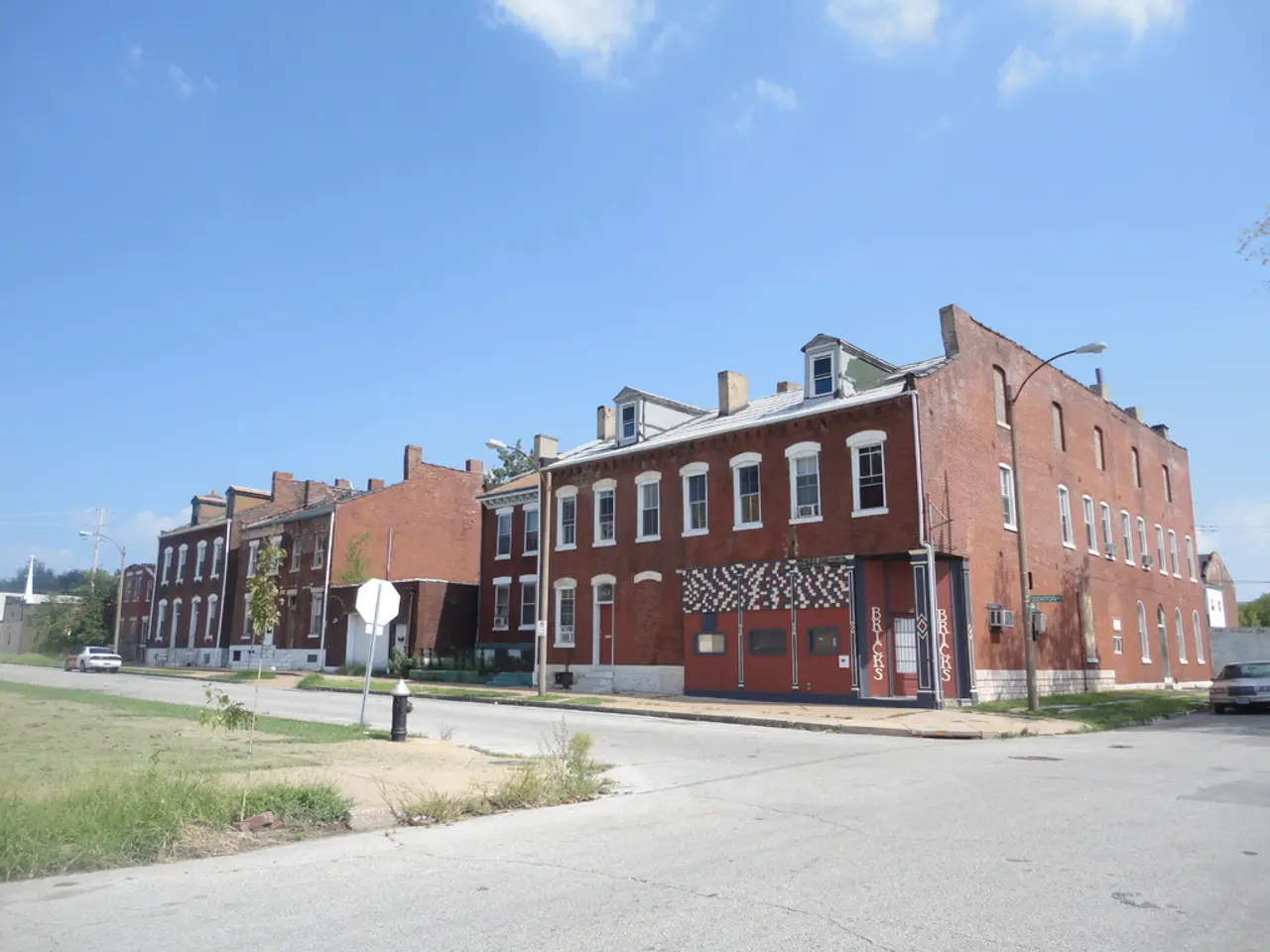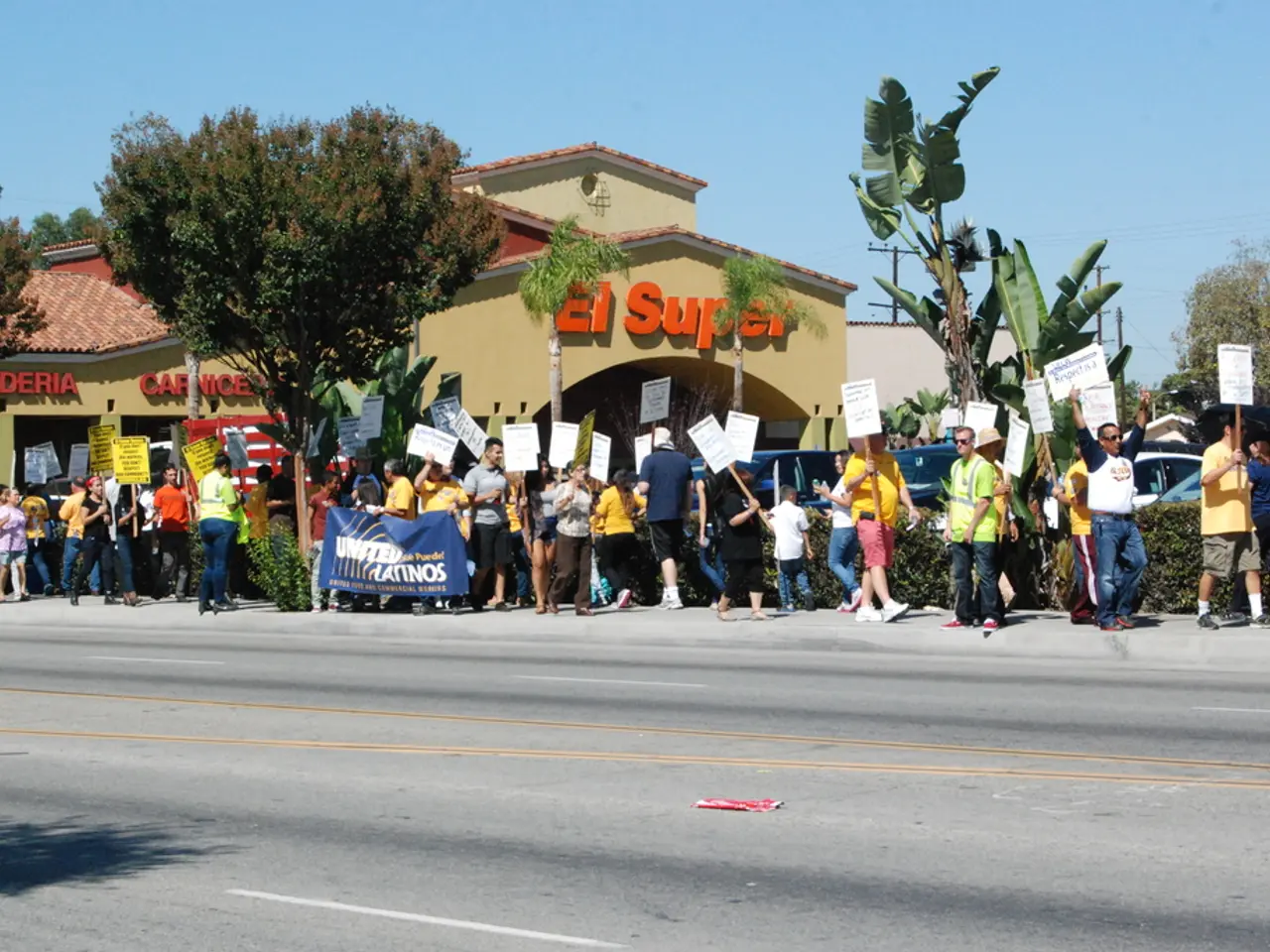Vice President Sara Duterte's Impeachment Challenge Dismissed by Philippine Supreme Court
The Philippine Supreme Court's unanimous ruling on July 25, 2025, has significant implications for the political landscape of the country, particularly in the lead-up to the 2028 presidential race. The ruling, which blocks Vice President Sara Duterte from being impeached until early 2026, effectively shields her from potential legal hurdles that could have derailed her political aspirations.
The decision, based on the constitutional provision known as the "one-year bar rule," restricts the filing of multiple impeachment complaints against the same official within a year. This ruling removes a significant legal obstacle for Sara Duterte should she choose to seek higher office, as impeachment proceedings could have weakened her campaign prospects if they continued.
The ruling has sparked debate and concern among constitutional experts, including former Supreme Court Justice Antonio Carpio and Constitutional Commissioner Christian Monsod. They argue that the Court may have overstepped its role by halting the Senate impeachment trial and introducing new procedural standards not clearly envisioned by the Constitution. This, they claim, could undermine due process and the constitutional intent of accountability, potentially weakening democratic checks on elected officials.
However, the Supreme Court insists that its role is to ensure legal processes occur within the framework of law and not political expediency. The Court emphasized that its ruling does not absolve Duterte of the charges; it only enforces the constitutional timing rule.
In terms of the 2028 presidential election, this ruling removes a significant legal hurdle for Sara Duterte should she seek higher office. The decision signals a de facto legal shield against repeated impeachment complaints within a one-year period, allowing her political career to remain relatively unscathed for at least the next year.
The ruling also establishes firm enforcement of the "one-year bar rule," restricting multiple impeachment attempts in a short span. This could potentially consolidate the political position and influence of those protected by this rule.
The ruling exemplifies the tension between legal technicalities and political accountability in Philippine democracy, influencing both individual political trajectories and broader democratic norms. As the 2028 presidential race approaches, the implications of this ruling will continue to unfold.
| Aspect | Implications | |-----------------------------|-----------------------------------------------------------------------------------------------------------| | 2028 Presidential Race | Shields Sara Duterte from impeachment proceedings until early 2026, bolstering her political viability. | | Impeachment Process | Establishes firm enforcement of the "one-year bar rule," restricting multiple impeachment attempts in a short span. | | Democratic Accountability| Sparks concerns about possible judicial overreach and procedural hurdles that may weaken checks on officials, raising alarms about due process and separation of powers. |
[1] Rappler. (2025, July 25). Supreme Court declares Sara Duterte's impeachment complaint unconstitutional. Retrieved from https://www.rappler.com/nation/elections/2028-presidential-election/680368-sc-sara-duterte-impeachment-unconstitutional
[2] ABS-CBN News. (2025, July 25). Supreme Court: Sara Duterte's impeachment complaint unconstitutional due to 'one-year bar rule'. Retrieved from https://news.abs-cbn.com/politics/07/25/25/sc-sara-duterte-impeachment-complaint-unconstitutional-due-to-one-year-bar-rule
[3] Inquirer.net. (2025, July 26). Supreme Court ruling on Sara Duterte's impeachment sparks debate on democratic accountability. Retrieved from https://newsinfo.inquirer.net/1330421/supreme-court-ruling-on-sara-duterte-s-impeachment-sparks-debate-on-democratic-accountability
The Supreme Court's ruling on July 25, 2025, has significant implications for the 2028 presidential race, as it shields Vice President Sara Duterte from impeachment proceedings until early 2026, bolstering her political viability. This decision also establishes firm enforcement of the "one-year bar rule," potentially consolidating the political position and influence of those protected by this rule, and sparking debate on democratic accountability. (policy-and-legislation, politics, general-news, society)
The controversy surrounding the Supreme Court's ruling on Sara Duterte's impeachment complaint has led to discussions on due process, separation of powers, and democratic checks on elected officials. As the 2028 presidential race approaches, this ruling's implications for accountability and the integrity of the impeachment process within society remain a hot topic. (policy-and-legislation, politics, general-news, society)








